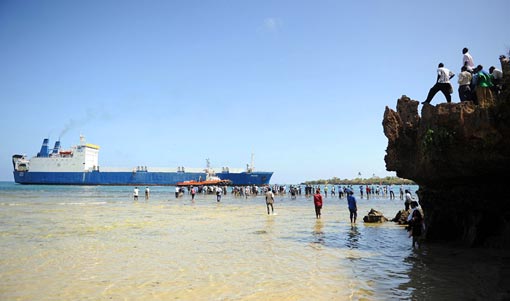By Patrick Vanderpool
Impunity Watch Reporter, South America

SANTIAGO, Chile – Monday, Justice Minister Felipe Bulnes called the overcrowding of Chilean prisons, which lead to the deadliest prison fire in the country’s history, “subhuman.” Overcrowding in penitentiaries was officially recognized as a primary cause of last Wednesday’s fire that burned part of the capital’s San Miguel Prison and killed 81 prisoners.
The San Miguel Prison currently houses approximately 1,900 people, double its intended capacity. This overcrowding can be seen in almost every jail in Chile. Chile’s prison population totals approximately 54,000 people; however, it’s infrastructure only has the capacity for 34,000 people.
Bulnes was quoted on a Chilean television network as saying, “of course we need more jails, because it would allow us to separate and rehabilitate. With rates of overcrowding like this, conditions are subhuman, an indignity.” He also admitted the need to purge the Gendarmeria, the Chilean prison service, in response to accusations by inmates’ families that guards regularly accept bribes to bring drugs, cell phones and other prohibited items into the prisons.
Jaime Pincheira, the prison warden Calama, a city in Northern Chile, has denied reports that 500 inmates began a hunger strike Sunday in solidarity with the families of the San Miguel victims. Pincheira told local reporters that only 200 of the prisoners there are fasting, some 40 percent of the prison population.
In a report on prison conditions last year, Supreme Court attorney Monica Maldonado found that some prisons have potable water only a couple of hours a day, a hundred prisoners share one usually infested toilet and the population in some jails easily doubles their capacity.
President Sebastian Pinera has responded to the recent criticisms and deaths by announcing a $460 million plan to improve conditions for Chile’s prisoners. The plan includes purchasing prefabricated modular prisons for minimum-security inmates to help reduce overcrowding in the country’s prisons.
The courts are currently investigating claims that prison police in San Miguel waited an hour before calling the fire department while 81 inmates suffered burns and smoke inhalation.
For more information, please see:
Global Post – The Story Behind Chile’s Prison Fire – 15 December 2010
Latin American Herald Tribune – Chilean Official: Prison Inmates “in Subhuman Conditions” – 13 December 2010
Associated Press – New unrest at Chile prison where 81 inmates died – 11 December 2010

